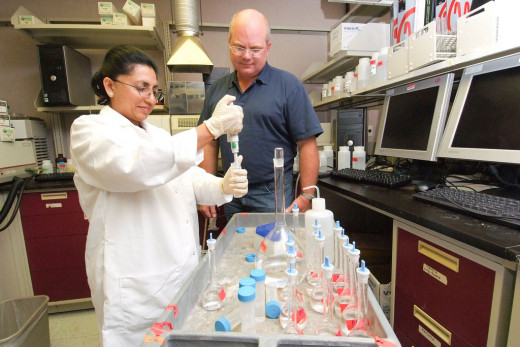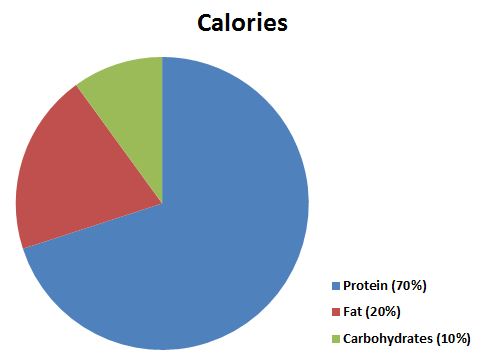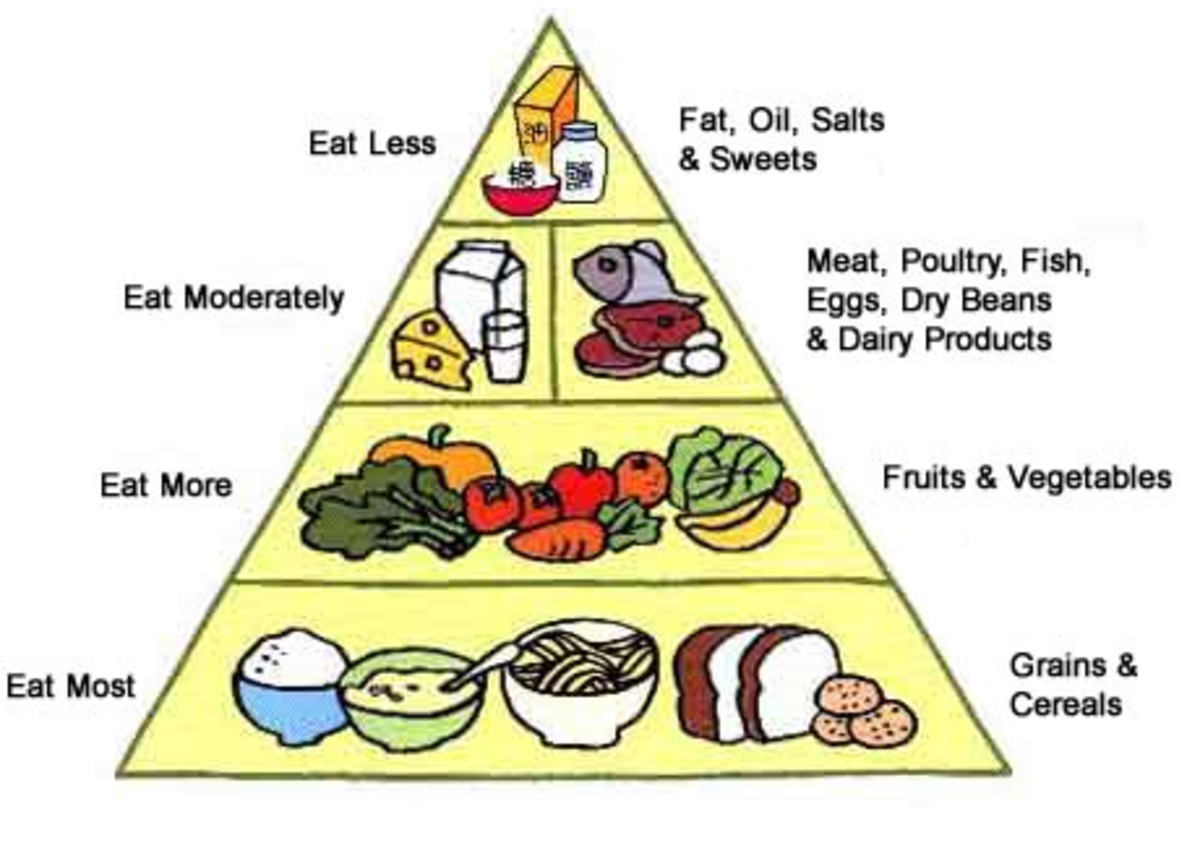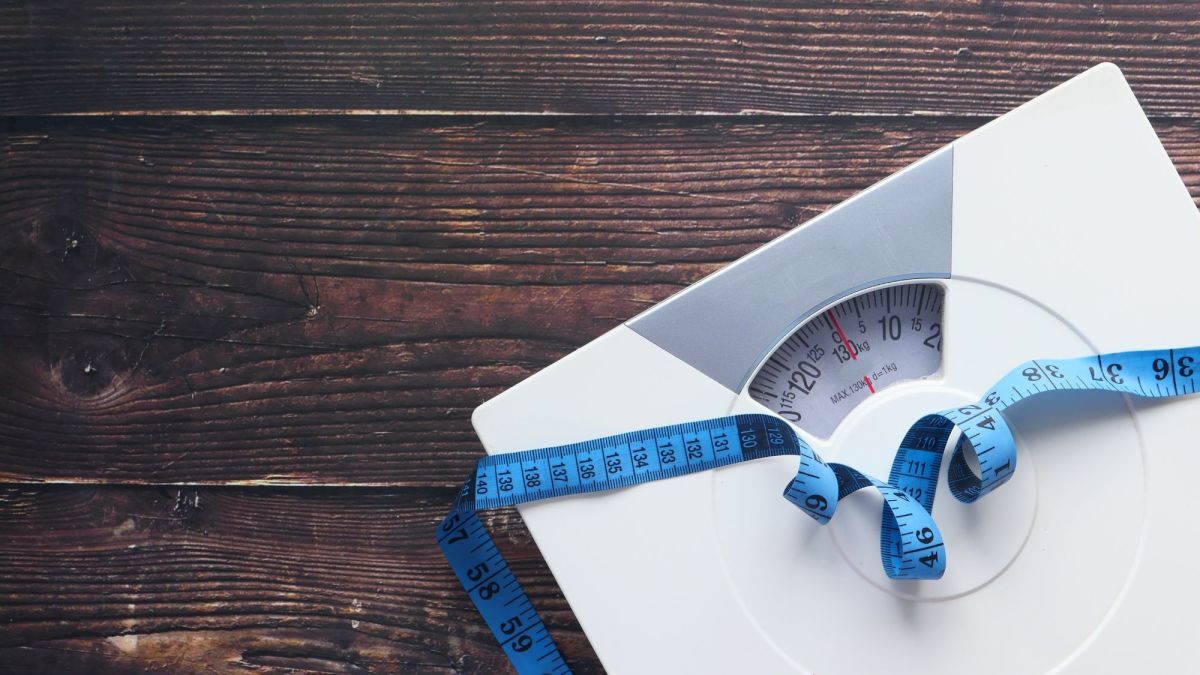Weight Loss for Slow Metabolisms
The Slow Metabolism Delimma

THE CONTROVERSY
In this article I will share with you a possible approach to lose weight if you happen to have a slow metabolism.
But first...a few words of introduction and explanation.
I'm breaking ranks.
At least it feels that way.
We who are in the health care sector feel compelled to typically "tow the line" with respect to our teaching and preaching about weight loss. We are supposed to treat everyone the same - giving the same recommendation to all: Decrease your calories & Increase your exercise.
"It will work" we are supposed to say.
And for those who say "I tried...and it didn't work" we are supposed to say "try harder."
BUT a growing body of evidence is starting to point to a problem with this classic advice. Yes, this works for most people. But not for everyone. There are some, call them individuals with a "slow metabolism" for now (I'll explain why I don't like that term shortly), that do all the "right" things, but fail to lose any weight for all their efforts.
This article flows BOTH from my own experience and from reading the medical literature. It is fueled by a growing frustration with well-meaning health care "experts" who refuse to acknowledge that the simple "calories taken in - calories burned" is the only rule for weight loss. I am convinced that there are individuals (maybe more than we are comfortable admitting) that struggle desperately to lose weight...and NOT because they are immobile gluttons...but because something is amiss with their metabolism. What follows is my own perspective on the issue of weight loss and slow metabolisms. I hope it helps.
What follows is divided into 4 sections:
- The Theory (is there such a thing as a slow metabolism?)
- The Evidence (clinical evidence for slow metabolism)
- The Program (how to lose weight with a slow metabolism)
- The Food (what exactly I ate during this time)


THE THEORY
Most people have a normal metabolism. Yes, I know that is a tautology.
But after years of struggling with getting my weight back to where I wanted it...I feel the need to emphasize this. How an individual handles the calories they take in can vary significantly. These differences have to do with our BMR (basal metabolic rate).
Some people have a FAST metabolism: You've seen them. They have a HUGE appetite. They rarely, if ever, exercise. And they are thin as a rail. They can't gain weight. They have a genetic predisposition toward a fast metabolism. When they eat more - their BMR simply speeds up to accommodate the increase and burns more calories to keep them thin.
Most people have a NORMAL metabolism: If they eat too much and exercise too little, they gain some weight. Typically, when they begin to correct their bad eating and exercising habits, the weight comes back off. For such people, which is the vast majority, virtually any weight loss program tends to work. So long as calorie consumption decreases and (maybe) exercise increases - they lose weight. I'm not saying it is easy. But it is normal. Their BMR is rather constant.
Some people have a SLOW metabolism: I don't like this term, though I am forced to use it in this article because it is the common terminology that is used. I don't like it because it suggests that their metabolism operates just like everyone else...just slower. But I don't think this is actually the case. I prefer to refer to these individuals as having a HIGHLY REACTIVE metabolism. Their BMR will DROP when calorie reduction begins. Such individuals experience the following:
- Normal efforts at calorie reduction rarely work, in fact, they may cause weight gain. Small meals more often, less fat, more protein, lots of water do not appreciably cause any weight loss.
- Exercise rarely helps. Again, the body seems to react violently to such efforts, greatly slowing down our BMR.
Such individuals have, according to this theory, a metabolism able to QUICKLY react and respond to any efforts toward weight loss. This becomes VERY discouraging, and hence such individuals often give up and don't try. While their friends go on a "diet" and lose 1/2 - 1 pound per week (the normal and expected results)....they have no such success to motivate them further. Discouragement quickly leads to defeat. They stop trying.


THE EVIDENCE
Is there any evidence that the above theory for a slow metabolism is correct?
Historically such an idea has not been embraced. The idea of a "slower" metabolism in the absence of any clinical abnormalities (e.g. hypothyroidism) was dismissed. Health care professionals just ASSUMED that patients who would not lose weight were not REALLY trying.
But I offer the following as evidence to support this theory:
EXPERIENCE: Look around you. We live and eat with people all the time whom we KNOW eat a LOT and don't gain weight...or eat a LITTLE and DO gain weight. We see HEAVY athletes in High School...who burn LOTS of calories and eat relatively healthy...but can't thin down. We see people who eat PILES of food and never gain an ounce.
STUDIES: More and more studies are beginning to uncover a deeper problem with our old theories of weight loss. For example, a study of overweight children discovered that increased exercise did not help with weight loss. Another study looked at the calorie consumption of overweight kids. Here is what they discovered:
"Older children who are overweight actually may consume fewer calories than their healthy-weight peers. It doesn't sound like it could be true, but that's what is suggested by the results of a major study of more than 12,000 children ages 2 to 17, published in the medical journal Pediatrics."
A fascinating study of twins revealed that similar diets resulted in significantly different results between one pair of twins and another. BUT the results of the twins themselves were almost identical. The authors conclude: "The high correlation in metabolic efficiency within twin pairs in response to therapeutic weight loss suggests a strong genetic contribution." In other words - its your genes, and not your jeans, that is keeping you from fitting into your clothes.
Thus both experience and science suggest that the idea of a SLOW metabolism may interfere with normal efforts at weight loss.

10% Carbohydrate Calories

THE PROGRAM
So what is someone with a slow metabolism supposed to do to lose weight?
How do you start losing weight if you are one of the fortunate few with a SLOW METABOLISM?
What follows is NOT necessarily a recommendation. If you are having trouble losing weight you should first check with your doctor, especially if you have any additional health issues or concerns.
I can tell you what is working for me. Following this program for 8 weeks got my metabolism back in line. It wasn't easy. It still isn't easy. But for me it is the only thing that has worked.
Week 1: Virtual elimination of ALL carbohydrates from the diet. All forms. No sugar. No chips. No bread. No pasta. No juice. No fruit. No corn, beets, carrots or potatoes. No dessert. No carbohydrates. Period. I know that 100% elimination is virtually impossible - and that was not my goal. Small amounts of sugar are in so many things. But my goal was a RADICAL reduction of carbohydrates.
Studies have been done to suggest that this approach may be better than a low fat diet for some. One such study, done on women, concluded: "a very low carbohydrate diet is more effective than a low fat diet for short-term weight loss and, over 6 months, is not associated with deleterious effects on important cardiovascular risk factors in healthy women"
Weeks 2-Goal: Allow adding back in vegetables and VERY limited fruit. But continue with very strict overall carbohydrate limits. As for maintenance - try to keep your calories from carbohydrates below 10% of your daily intake and your calories from fat around 20%. This requires a major shift in our food focus. See below for eating suggestions.
ADDTIONAL PRINCIPLES AND PRACTICES:
Never get full. I refused to allow my stomach to get that "stuffed" feeling. This "eating until stuffed" is a bad habit and needs to be broken. It isn't necessary. Forcing yourself to stop before the "stuffed" feeling begins will cause your stomach to shrink, and seems to reduce cravings.
Be especially stingy with Carbs first thing in the morning. After sleeping, your metabolism has its back up against the wall. It wants sugar. Don't give in. Force your body to start to burn fat first thing in the morning. Drink water. Drink coffee with a sugar-substitute (half & half is okay for cream).
Weigh daily - record weekly. Buy a good digital scale (see the one I recommend pictured above on the right) so that you can watch your weight down to the 1/10th of a pound. Weigh yourself at the SAME time every day. Once a week, record this. If your weight fails to fall for 2 consecutive weeks, consider returning to the TOTAL carbohydrate reduction of week 1.
Note: Those with a slow metabolism may have days where - in spite of VERY reduced calories and a shift to mostly protein - they gain 1-3 pounds. Yes. It sounds crazy. But as I argued above - these individuals have a HIGHLY REACTIVE metabolism. It fights. But I believe it cannot fight without carbohydrates for very long. Stick to it.

Some Great Low-Carb Resources
THE FOOD
What you choose to eat while following a VERY low carbohydrate diet will depend entirely on your own tastes.
Here are the things that I have focussed on:
I use artificial sweetener for my coffee (both Truvia and Spenda are good choices)
I drink only water or diet soda
I stick with chicken, fish, hamburgers or sausage for my meat choices.
Chicken salad or ham salad are great. Regular Mayo or Miracle Whip have almost no carbs.
Eggs are a great source of protein with no carbohydrates.
Cheese! Cheese is very low in carbohydrates.
Nuts. In moderation. Most mixed nuts have some carbohydrates also. But they make a good snack and will still allow you to stay at less than 10% carbohydrate calories per day.
Salad, Vegetables and Fruit. After the first week (in which the goal is close to zero carbs) I have allowed myself to eat these pretty liberally - remembering the goal of NEVER allowing yourself to reach the "stuffed" feeling if you can help it.
These are the foods and the approach I have used successfully to lose weight with a slow metabolism.

DISCLAIMER
Nothing in this article should be taken as a professional recommendation or suggestion. I offer it merely to communicate my own experience and struggle, along with the approach that has worked for me. Individuals should check with their physician before attempting any diet program.
FAQ
1. Isn't this just the Atkins Diet?
Not exactly. I tried Atkins. It didn't work for me. I believe part of the problem is that the Atkins approach allows pretty much unlimited fat calories. For some this might be fine. But I could not lose any weight until I also reduce my fat calories to around 20%.
2. What about exercise?
It's great! However, as I mention at the beginning, I am convinced that some people will not lose MORE weight simply by exercising. There are many other great reasons to exercise, but if you do not have time...this program may STILL WORK. I was able to lose about 1.5 pounds per week without exercise.
3. Isn't this too hard?
It isn't easy. If another approach works for you - by ALL MEANS use it. But I will tell you that after the first few weeks it got easier. The carbohydrate craving diminished. I have shared this information here for those who have TRIED many other approaches and have determined to give up. You can lose weight with a slow metabolism. This approach seems to have done the trick for me. I'm not saying it is the only way to lose weight. Most people can lose weight some other way. But for those with a slow metabolism this may be an approach that finally shows some results.
4. How long do you continue like this?
As long as it takes to reach your goal.
5. Did you ever cheat?
Yes. Maybe 1 meal per week I allowed myself more carbohydrates than normal. This allowed me to go out to eat once in a while, or have pizza with the youth group and not feel guilty. However, if you find yourself not losing weight for 2 consecutive weeks, you may need to reconsider whether "cheating" is something your metabolism can handle.
6. What about Metabolism Boosting Supplements
Frankly, as a pharmacist, I am not convinced by solid medical evidence that they in fact do what they claim to do. Many are stimulants that could be harmful to some individuals. Others simply work by decreasing the appetite temporarily. Sometimes they "work" simply because we just spent $40.00 on the bottle of pills...and we don't have enough money left to buy junk food!









